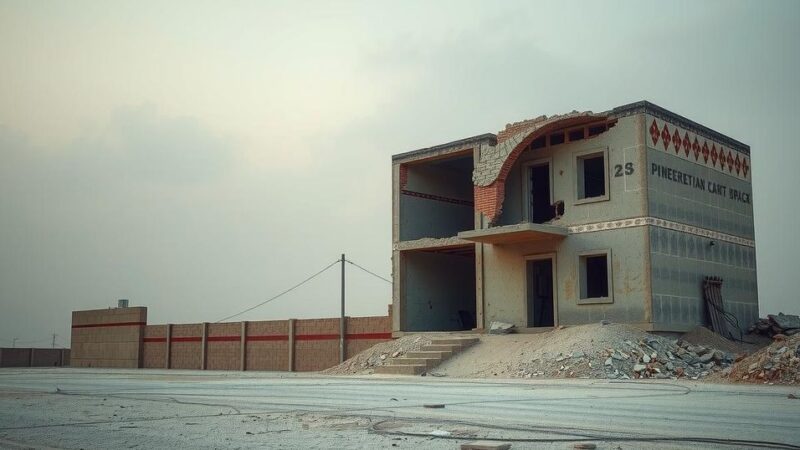An anti-Ethiopia coalition is forming with Egypt, Eritrea, and Somalia uniting to counter perceived threats from Ethiopia and bolster military presence in the region. This development comes amid complex geopolitical tensions, including disputes over the Nile River and involvement in Sudan’s civil conflict, potentially destabilizing the already fragile security landscape in the Horn of Africa.
An emerging alliance of Egypt, Eritrea, and Somalia is posing significant challenges to Ethiopia amid increasing tensions in the Horn of Africa. This collaboration was solidified last week when Eritrean President Isaias Afwerki hosted Egyptian President Abdel Fattah al-Sisi and Somali President Hassan Sheikh Mohamud in Asmara, culminating in a security partnership aimed at strengthening Somali institutions to combat internal and external threats, particularly terrorism. This coalition is largely driven by a shared concern over Ethiopia’s recent territorial and diplomatic maneuvers. Ethiopia’s lease of coastal territory from Somaliland, regarded by Somalia as its own land, and its ambition to restore access to the Red Sea are viewed as provocations. In light of these developments, Egypt has sought to bolster its military presence in Somalia, having dispatched arms in September and seeking to replace Ethiopian peacekeepers with Egyptian troops in response to rising attacks from the al-Shabab militant group. Regional dynamics are further complicated by Egypt’s long-standing disputes with Ethiopia over the management of the Nile River, particularly concerning the Grand Ethiopian Renaissance Dam (GERD), which Egypt fears threatens its vital water supply. Moreover, the situation in Sudan has drawn the three nations into an intricate web of alliances; they are backing the Sudanese army in the ongoing civil conflict against rebels supported by Ethiopia. Despite Ethiopia and Eritrea’s recent history as military allies against the Tigray People’s Liberation Front, tensions remain high. Eritrea’s lingering dissatisfaction with peace agreements from the Ethiopian civil war suggests potential for renewed hostilities. Somalia’s current political landscape, characterized by fragile clan relations, raises concerns that external support could exacerbate existing divisions, potentially inviting further instability and conflict. Egypt’s alliance with Somalia could inadvertently bolster al-Shabab by providing it additional reasons to mobilize against the Somali government, undermining stability in the region. Observers warn that the interaction between Abiy Ahmed and Isaias Afwerki may lead to further confrontations, given their historical adversarial and complex relationship.
The situation in the Horn of Africa has become increasingly volatile due to the confluence of regional politics, historical territorial disputes, and the ongoing civil wars affecting several countries. Ethiopia’s recent activities, including the leasing of territory from Somaliland and its ambitions regarding the Red Sea, have alarmed its neighbors, prompting Egypt to strengthen ties with Eritrea and Somalia. This coalition is not only about mutual security but also reflects a struggle for influence and control over resources and strategic pathways in a region marked by fragile political structures and ethnic divisions. The interplay of international interests, as evidenced by the involvement of global powers like Turkey and the UAE, adds another layer of complexity to the regional dynamics, challenging existing alliances and prompting fears of escalating conflicts.
The burgeoning alliance between Egypt, Eritrea, and Somalia represents a significant shift in regional power dynamics, primarily aimed at countering Ethiopia’s perceived ambitions. While addressing mutual threats such as terrorism, this partnership risks exacerbating existing tensions, particularly in relation to Ethiopia’s historical disputes over resources and territorial access. Critics of Somalia’s current leadership express concern over the potential for these alliances to instigate proxy wars and further fracture the delicate balance of power within Somalia, threatening broader stability in the Horn of Africa.
Original Source: foreignpolicy.com






